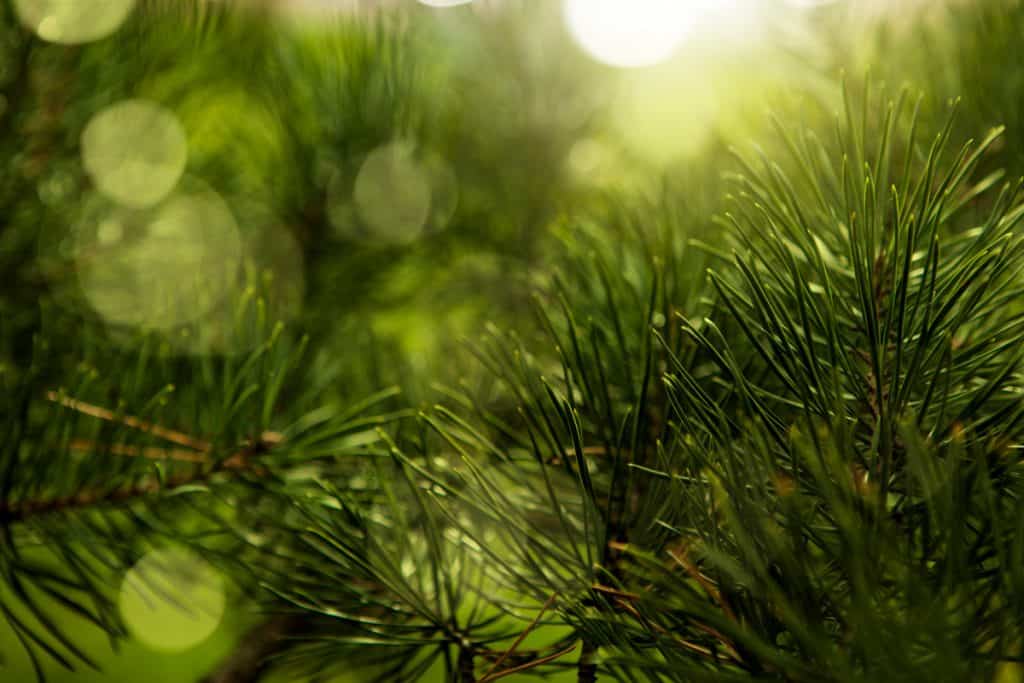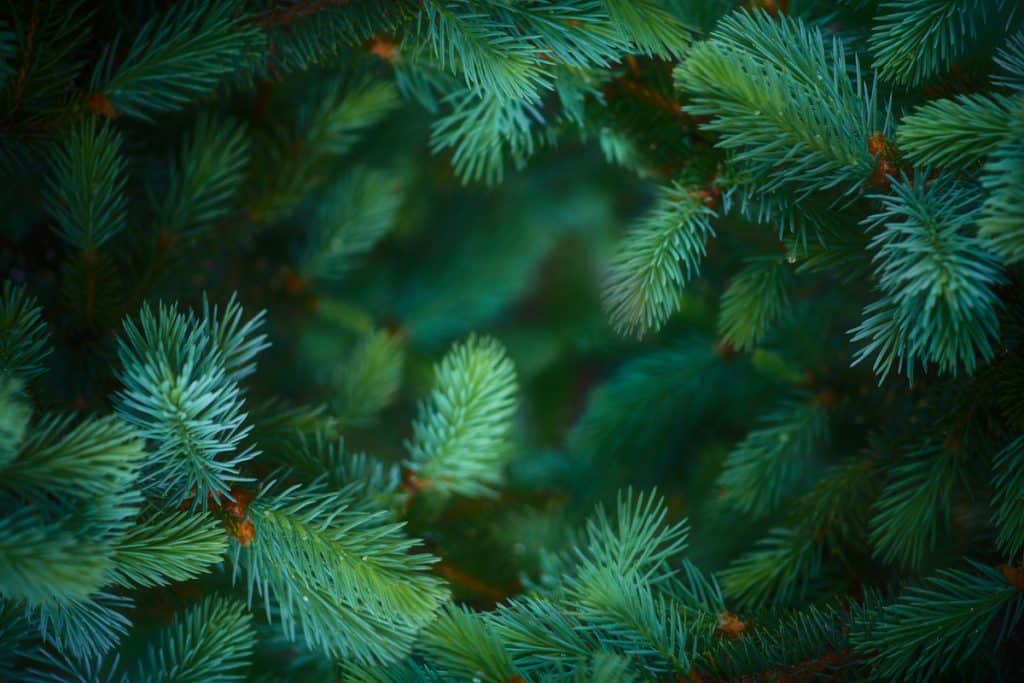Pine needles have a way of getting all over the place, but conventional wisdom says they are acidic and, thus, bad for your garden. Thankfully, pine needles making your soil acidic is an old gardener's tale. As science and gardening have evolved, we have discovered the truth behind pine needles and their effects. We researched this topic so you know how the acidity of pine needles can impact you and your garden.
Pine needles are acidic, having around 3.8 pH. The myth that pine needles make the soil acidic likely started because pine trees grow best in slightly acidic soil.
We searched high and low to come to this conclusion. Let us take a closer look at how we came to this answer and what it means for you and your garden.
![A close up shot of a small pine needle, Are Pine Needles Acidic? [And how that affects your garden]](https://gardentabs.com/wp-content/uploads/2020/08/Are-Pine-Needles-Acidic-And-how-that-affects-your-garden-683x1024.jpg)
Are Pine Trees Acidic or Alkaline?
Pine trees are acidic. Pine needles are acidic, and, like many plants, pine trees enjoy slightly acidic soil. However, as things break down over time, the pine needles become much more neutral.
If you wonder why not many plants grow around the bases of pine trees, it has less to do with the soil and more to do with the pine trees themselves. Pine needles being so acidic is an "old gardener's tale" and with modern science, we know this is not the case.
Often, deep roots from the pine trees drink much of the water, making other plants compete for root space and water. Pine trees' shadow also may make it difficult for many other plants do not grow around the base of pine trees.
If you are looking for plants to spruce up the area around your pine, wooly thyme, bleeding heart, and Columbines usually grow well around the base of pines. These plants are typically shade tolerant and do not need a lot of water. If you notice them struggling to establish themselves around the bottom of your pine, consider giving them some supplemental water.
Are Pine Needles a Good Mulch?

Pine needles are a good mulch as they help the soil retain moisture. Likewise, they also help prevent weeds and break down naturally over time. Because it breaks down, you will need to add more pine needles or other mulch periodically. However, as the pine needles break down, they add vital nutrients to the soil and benefit the plants around them while also acting as a mulch.
Leaves can supplement pine needle mulches as they also break down and add different nutrition. Likewise, pine needles act as a mulch alone but can also mix with other materials such as bark or rubber mulch. Because of their texture, dried pine needles used as mulch are sometimes called "pine straw."
Pine needle mulches are especially suitable for around trees and shrubs that need the nutrients that pine needles provide. Other plants that benefit from pine needle mulch include azaleas, ferns, and hydrangeas.
Are Pine Needles Bad For a Garden?
No, pine needles are not bad for the garden. They are a great addition to compost piles and can be used in many different ways.
The general rule of thumb is not to let any one thing comprise ten percent or more of your compost pile. That includes pine needles, leaves, and anything else you might add to your compost pile. This has less to do with acidity and more to do with the chemical and nutrient composition of your compost pile.
However, while pine needles are suitable for a garden, pine trees should not be planted too close to a garden plot. Pine tree roots grow deep and can potentially steal water from nearby plants. Even if the other plants are in a raised bed, shadows cast may keep plants from going to their potential.
If you want to plant a pine tree, carefully consider how big it will grow many years in the future. Cedars and other pines are invasive species, so take variety into account as well.
Are Pine Needles Good For Anything?
Pine needles have a wide variety of uses in the garden but also have been noted as being a potent herbal remedy. Some people use pine needles for everything from a disinfectant to salves. If you consider using pine needles in any way, be it topically or to consume, make sure to research potential side effects.
Another practical use for pine needles is as a fire starter. Pine needles can be found around most campsites and catch fire quickly. Since it is naturally occurring, it is a great fire starter for camping trips. If you are using it while camping, make sure not to pull live needles off the pines or otherwise harm the environment. The rule of thumb is to leave a campsite better than you found it.
People also make practical items such as baskets from woven pine needles. While woven pine needle baskets and bowls are the most common use of pine needles on their own, many DIY projects use pine needles. Some ideas include making DIY Pine-sol, a pine-infused foot wash, and pine needle wreaths.
Are Pine Needles Toxic?

No, most pine needles are not toxic to the soil or humans. However, some varieties of pine trees are toxic to animals, especially livestock. Ponderosa pines, lodgepole pines, and Monterey pines are toxic to animals. Eating large amounts of poisonous pines may cause miscarriages in livestock.
Other pines, such as Norfolk island pine, and Yew pine, are also toxic to pets. It is good to do a detailed search for information on any plant you plan to bring into a house with pets. If you already own a plant you know is toxic to animals, consider moving it to a spot where it would be difficult for them to reach it.
Before considering consuming any wild plant, be aware of the risks. Likewise, be sure to consult a detailed foraging guide. Consult your doctor if you plan on consuming any foraged plants.
Do Pine Needles Contain Vitamin C?
Yes, pine needles contain vitamin C. Some people think pine needles may provide three to five times more vitamin C than an orange. The vitamin C content of pine needles depends on several factors, including location, variety, and soil nutrients. Pine needles also contain high amounts of vitamin A.
Because of this, many people brew and drink pine needle tea. Check out this article on more details of how and why to brew your pine needle tea. Please thoroughly research and consult your doctor before consuming any foraged plant.
Conclusion
In conclusion, pine needles are acidic immediately after they fall from their trees. They become neutral as they break down. Pine needles can be a great addition to your garden in a variety of ways. They are an effective mulch and valuable addition to your compost pile. While some pines are potentially toxic, after research, pine needles can also be used in crafts or tea.
Pine needles and pine trees are versatile in their looks and use. After some research, you are sure to find a pine tree that suits your needs.
Further Reading
Want to know more about pine trees and their benefits? Please take a look at some of our other informational articles.
What's the Best Ground Cover Under Pine Trees?
